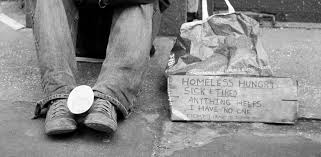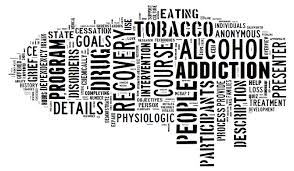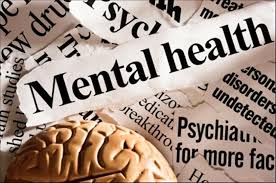Rehab Articles

Two of the top reasons that people become homeless are mental illness and alcohol abuse or other forms of substance abuse, and a new program called Housing First is taking steps to provide a solution. A recent study found that it is possible to reduce alcohol abuse for those with mental illness in the homeless population by providing these individuals with a safe place to live that has no preconditions attached. The Housing First approach does not place stipulations on a place to live, such as seeing mental health professionals or sobriety testing. Instead Housing First places a focus on getting the homeless individual into permanent housing that allows the individual to live independently. Support and additional services are provided as needed but the homeless individual does not have to follow any preconditions in order to have a safe place to call home.
The underlying ideal behind the Housing First initiative in order to fight alcohol abuse and mental illness among the homeless is that people will be able to move forward and will have a better life if they have stable housing and a more predictable living situation. The study involved 378 people who were all homeless, and who were all diagnosed with some form of mental illness. All of the study participants were from Toronto, Canada. Those who took part in the Housing First initiative saw a drop in alcohol abuse of more than 50%, and this decrease occurred in spite of the fact that the homeless were not forced to stay sober or to follow any other preconditions in order to avoid becoming homeless again.
Rehab Articles

A new research study shows that patients who receive opioid drugs for chronic lower back pain get significantly less pain relief and are more likely to abuse the narcotic pain medications if they also suffer from some form of mental illness as well. According to University of Pittsburgh School of Medicine professor of anesthesiology and psychiatry and study author Ajay Wasan, M.D. “High levels of depression and anxiety are common in patients with chronic lower back pain. Learning that we are able to better predict treatment success or failure by identifying patients with these conditions is significant. This is particularly important for controlled substances such as opioids where, if not prescribed judiciously, patients are exposed to unnecessary risks and a real chance of harm, including addiction or serious side effects.”
The study on chronic back pain, opioid abuse, and mental illness involved 55 participants, and all of these individuals suffered from chronic back pain. Those who had high levels of anxiety or depression saw 50% less back pain relief and improvement, and this group also had 75% more opioid abuse. The group with symptoms of mental illness also saw increased side effects from the pain medications that were used. It is commonly recognized that mental illness, including anxiety and depression, can cause physical pain and other symptoms. Dr Wasan stated “It’s important for physicians to identify psychiatric disorders prior to deciding whether to prescribe opioids for chronic back pain as well as treat these conditions as part of a multimodal treatment plan. Rather than refusing to prescribe opioids, we suggest that these conditions be treated early and preferably before lower back pain becomes chronic. For those prescribed opioids, successful treatment of underlying psychiatric disorders may improve pain relief and reduce the chance of opioid abuse in these patients.”
Rehab Articles

A new study on recidivism, published in the Health and Justice journal from Springer, shows that mental illness and substance abuse both raise the rate of recidivism among ex-prisoners. The study showed that ex-convicts who had a history which involved mental illness, substance abuse, or extreme poverty also had a much higher risk of ending back in prison. The study also showed that people who are chronically ill, who have attempted suicide, or who are obese are less likely to end up back in prison once they are released. University of Melbourne in Australia researcher Emma Thomas, M.Sc., led the study, which included analyzing interviews with more than 1,300 prisoners. These prisoners were interviewed both before and after their initial release, and they all came from 7 Queensland, Australia prisons.
Mental illness, substance abuse, and poverty factors were discussed in the interviews. The study found that those who had reported using cannabis, opioids, or methamphetamine before being sent to prison, and those who were convicted of a drug related crime, had a much higher risk of returning to prison once they are released. Substance abuse and mental illness are often present in the same individual. Participants who lived below the poverty level, and those who did not place an importance on staying healthy, were also more likely to head back to prison once they were released. According to Thomas “Many of the factors identified are easily measurable prior to release from prison, and could inform improvements to transitional planning without the need for additional, in-depth assessment. Most of these predictors are also modifiable and could potentially serve as targets for re-entry interventions.”
Rehab Articles

There are a number of important factors that have to be examined with any dual diagnosis. This type of diagnosis is used if you have some form of mental illness along with some type of substance abuse. This can be someone who is bipolar and who abuses alcohol to try and manage their mental illness. It is very common to find substance abuse and mental illness in the same patient, and these two conditions often go together. The first factor that needs to be looked at is what the specific symptoms are. This will help diagnose the mental illness component so that both issues can be effectively treated. If only half of the problem is resolved you will eventually end up right back where you started and suffer a relapse.
Once the proper dual diagnosis has been made, one that identifies both the substance abuse and the mental illness, then the next factor is the right treatment program for your specific treatment needs. There are great programs that specialize in dual diagnosis treatment, but there are also some which do not have the knowledge and resources available to treat these types of cases. Do you have health insurance? If so will it cover the program that you have chosen? If not can you afford to pay the cost? These are important questions to ask. Some of the most effective treatment programs can run tens of thousands of dollars a month. On the other hand just because a program costs this much that does not make it the most effective.
Rehab Articles

When it comes to mental illness early detection and diagnosis is imperative for the best possible outcome. The truth is that around 54 million people in the United States alone suffer from some type of mental illness. Early detection and diagnosis can help prevent any symptoms experienced from becoming more severe. For many people having a loved one with a mental illness can be devastating. When these conditions are detected early the prognosis is usually much better. Some of the early signs of mental illness include:
-
Sudden changes in thoughts or behavior
-
Extreme mood fluctuations
-
Excessive anxiety or worry
-
Confused thinking
-
Withdrawing from social activities and friends
-
Delusional thoughts or ideas
-
Thoughts of suicide
-
Prolonged sadness
-
Extreme irritability
-
Hearing or seeing things which are not actually there
-
Substance abuse
-
Changes in usual activity patterns
-
Legal problems
-
Difficulty at work or in school
-
Excessive absences
-
Financial difficulties
Any one of the mental illness warning signs above is not necessarily a cause for alarm. Early detection and diagnosis is important so that treatment can begin. If you notice several of the signs listed above then a consultation with a mental health professional is advised. We all have bad days or times when we are frustrated or sad. If any unusual thoughts, behaviors, or patterns persist then even one or two may be a reason to seek professional help. Family members are often the first to notice small changes because they are most familiar with the individual.



